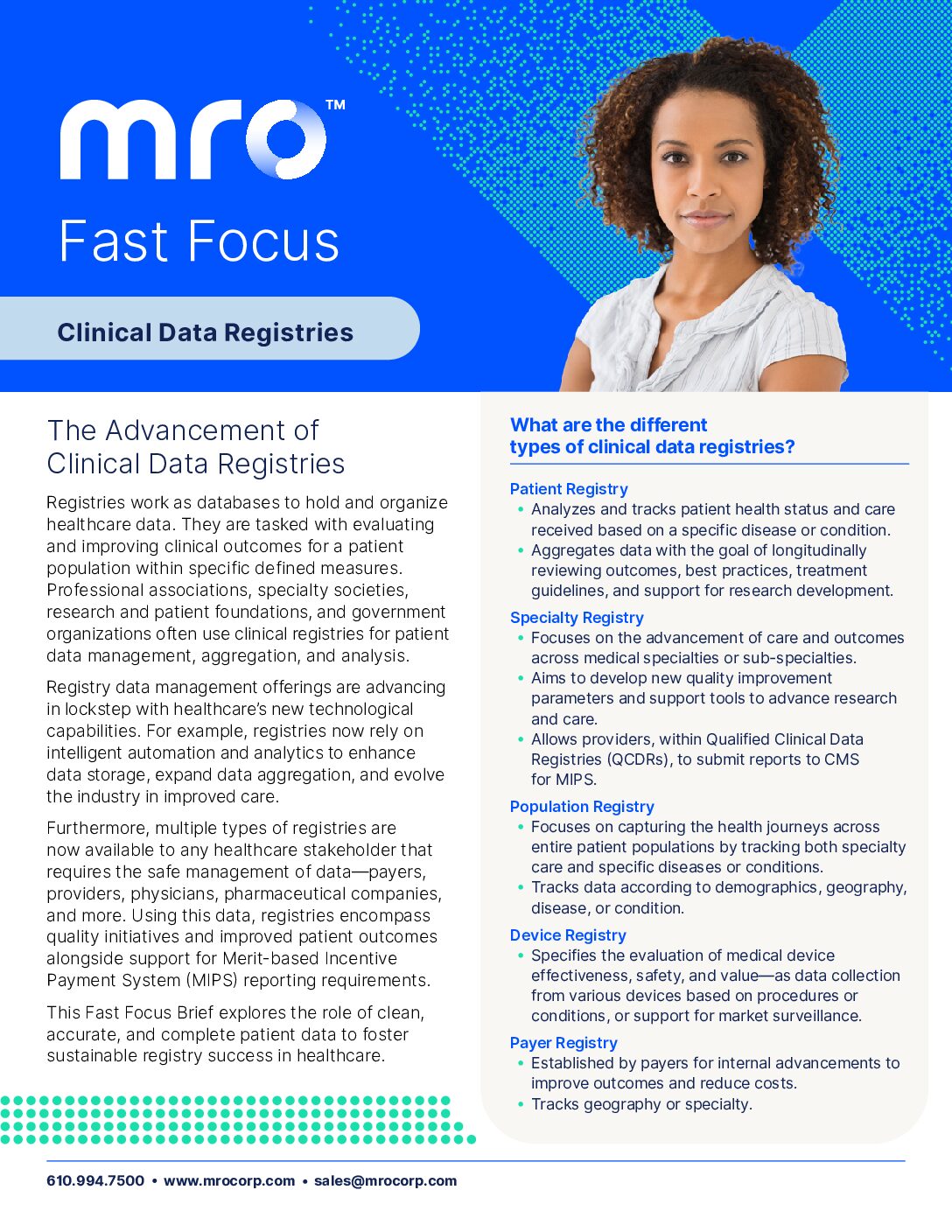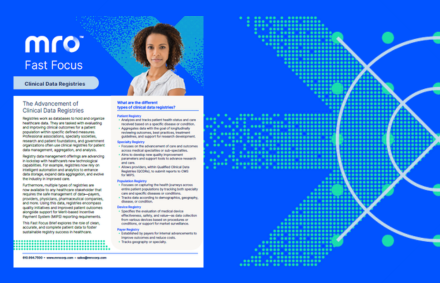Clinical data registries work as databases to hold and organize healthcare data. They are tasked with evaluating and improving clinical outcomes for a patient population within specific defined measures. Professional associations, specialty societies, research and patient foundations, and government organizations often use clinical registries for patient data management, aggregation, and analysis.
Registry data management offerings are advancing in lockstep with healthcare’s new technological capabilities. For example, registries now rely on intelligent automation and analytics to enhance data storage, expand data aggregation, and evolve the industry in improved care.
Furthermore, multiple types of registries are now available to any healthcare stakeholder that requires the safe management of data—payers, providers, physicians, pharmaceutical companies, and more. Using this data, registries encompass quality initiatives and improved patient outcomes alongside support for Merit-based Incentive Payment System (MIPS) reporting requirements.
Read the full “Fast Focus: Clinical Registries and the Compilation of Databases” below to explore the role of clean, accurate, and complete patient data in fostering sustainable registry success in healthcare.


